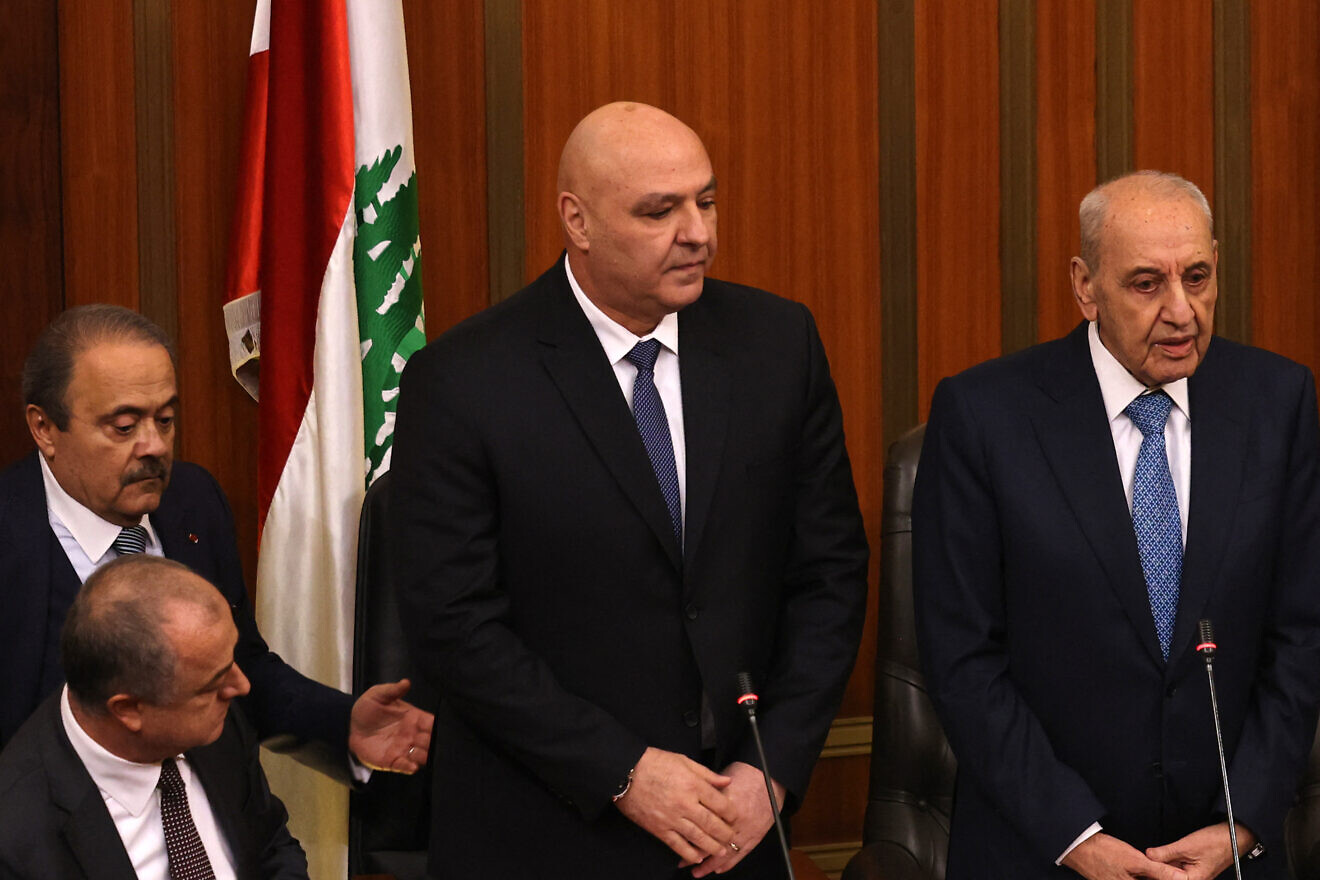British actress Hayley Atwell explodes into the Mission: Impossible series as Grace, a woman who unwittingly turns the whole world upside-down. Grace is loyal to nobody, putting her particular set of skills to use for whoever has the funds to employ her, no questions asked. Her life of independence is thrown into chaos when the wrong job puts her in over her head and she finds herself fleeing danger with Ethan Hunt. As different as oil and water, this pair are forced together in a race to right a catastrophic error. But Grace is not accustomed to working with others…
Atwell is one of Britain’s best-loved actors, with an impressive career across stage and screen. She’s received three Olivier Award nominations for her work in theatre and is adored by fans around the world for her role as Agent Peggy Carter in the Marvel Cinematic Universe. Her arrival in Mission: Impossible – Dead Reckoning Part One will shake Ethan Hunt’s life like never before.
Christopher McQuarrie has described Grace as “a chaotic force of nature”. How would you describe her?
“She’s an artful dodger, a lone wolf. Also, quite out of her depth! Her dynamic with Ethan is really fun. Grace and Ethan are two people who shouldn’t be in the same room together but are forced to be because they have a shared common goal. The more she exasperates him, the funnier it becomes.”
How would you describe the dynamic between Grace and Ethan?
“From the very beginning, it was Tom and McQ and I all talking about character. We were working out what the language of our movie was. They wanted to have a comedic element to it that didn’t feel farcical and didn’t feel pushed, but also felt kind of not cute. Within the context of the plot, and within the context of these stunts, we’d come up with ideas, try different kinds of dialogue. They would listen to the way I delivered my lines based on my own vocal rhythms and then suggest lines to me that would really help my character pop. I watched Tom and McQ like a hawk, trusted the process and listened intently to what I could hear they were excited about finding in the scenes. For Grace and Ethan, that relationship had a particular quality. They’re very different people, from very different backgrounds, but they have a very equal balance.”
In what way?
“For instance, Grace and Ethan have a 20-minute car chase sequence through Rome, and we did most of it as a two-shot – I’m reacting off him, he’s reacting off me. We’re working together. But we’re also trying to find moments where we show that Grace basically doesn’t know him. He’s put her in this tiny yellow Fiat and he’s trying to be cool. But when he gets in, he turns on the windscreen wipers instead of the car itself. So, in her eyes, Grace is like, ‘Who is this guy? I don’t think this guy knows what he’s doing!’ It was about finding little moments of physical behaviour where the audience could see that Grace doesn’t really trust this guy.”
The train sequence in the movie looks spectacular, with zero gravity, locomotives going off bridges and more. What was it like to shoot?
“That is such a big sequence in the movie and it was so much to film. Basically, each train carriage [in that sequence] has its own story. Me and Tom [Cruise] have to overcome the different obstacles as they come – the kitchen carriage is very different from the dining room carriage and so on. There’s a whole sequence where the train is vertical and me and Tom were at the very top of it, standing on platforms and looking down the entire length of a train carriage. It was surreal. The terror on my face? There wasn’t really any acting required.”
What were the physical demands of that sequence for you?
“Well, the carriage started off horizontal and took six seconds to go entirely vertical. Tom and I were positioned at one end of the of the train carriage and on ‘action’ we had six seconds to run up a very steep incline. We were both aiming for bars that we could hold onto. We did it quite a few times. If you’ve ever done incline-sprinting, you’ll know that you get tired very quickly! I think it was about the third or fourth time we did it, and afterwards we were hanging there, suspended [on their cables] while the carriage came back down to reset. And Tom looks at me and goes, ‘Are you okay?’ And I looked at him, out of it, and said, ‘I don’t know. I don’t even know what I don’t know.’ [Laughs] He looked at me and said, ‘You might have adrenal fatigue right now. Do you need anything?’ I just looked at him and said again, ‘I don’t know.’ He said, ‘Okay, do you need some chocolate?’ I was like, ‘Yes. Yes, that is literally all I do know. I do need some chocolate.’ He called someone over and 30 seconds later this beautiful little box of chocolate arrived. I snaffled them up and went, ‘I can do it!’ Somehow it helped me dig deep and find this energy reserve I didn’t know I had. So, you know, pay me in chocolate.”
Simon Pegg says that the irony is that, even though he’s the one doing all the really huge stunts, Tom is very concerned about his co-stars when they’re doing stunts. Do you agree?
“He’s like your boxing coach in the corner of the ring. Before we’d do anything, the stunt department would break down what we were going to be asked to do, and Tom would go, ‘Okay, let’s have a look. Let me see.’ He’d check your harness for you. That’s what he’s like. Yes, he does extraordinary things, but he is so thorough in his detail of preparation. His approach is never reckless. I think what happens is that he gets to a level of competence, where he has trained and drilled and practised over and over again, that means he can do it and it looks spontaneous. He knows how it’s living within his body. Watching his approach is very inspiring. If I was working with someone who did those things but was either very nervous or very reckless, it would create a fear in me that would probably mean I’d hold back more. With him, you feel safe. Like you can go for it, take those big risks.”
The way Mission: Impossible is made is unique in blockbuster filmmaking, not working from a script but developing the characters as you shoot. How did you find that?
“By the time I got on set I wasn’t surprised because they told me that’s exactly how it was going to be. At the screen test, McQ had written me 10 pages of dialogue. Tom had learned it, cameras were on. We did it and then Tom would say, ‘Do you want to try one where she’s withholding more information? Maybe we swap that last line into the middle of the scene? Hey, McQ, let’s come up with something new here.’ It was always a good scene. It’s just choices. These guys are always, always working. So, because the audition was like that, I could see how they had a symbiotic relationship where they spoke this common language and could pretty much finish each other’s sentences. McQ and Tom were bouncing ideas off each other constantly. They weren’t ever fixed on an idea, they were always searching. And that’s exactly what it was like on set.”
What does that mean for you, as an actor?
“It sets up an opportunity for me as an actor to come in and not just stand on my mark and say my lines, but rather feel like I can try a whole range of things. Because it was safe to do so, because there was no judgement, no sense that you could fail. That means you access that childlike mentality of just playing. It’s so invigorating as an actor. It was so inclusive. And Tom and McQ were so involved, all the time. They would pop into the racetrack and see me when I was training [in the car], to see how my drifting was coming along. They would watch and work things out. Things like, ‘Can she drift competently and safely, but also perform at the same time, in a way where her character doesn’t seem to be competent at all, doesn’t know what she’s doing?’ Based on what they were seeing, the character would emerge. It was the same when I was training for a fight sequence.”
How would you describe Grace’s fighting style?
“It was mostly hand-to-hand, punching and grappling. But at one point, my teacher gave me two knives and went, ‘Now do it’. And it was a lot faster. What I learned, which I knew about from my work on stage, is that I love props. I can do things with a prop that can convey a character trait. And, seeing that I’m fast with things in my fingers made Tom and McQ think, ‘Can Grace do sleight-of-hand tricks? Is she, therefore, a pickpocket?’ It was a truly fascinating way of working. But, also, they’re very conscious that you’re going to enjoy doing it. You’ve got to love doing it. You know, if I can do a high kick but I hate doing them, we’re not going to use that. But if I’m doing sleight-of-hand tricks, or drifting, or jumping backwards off a bridge, and I’m loving it, then we all know that I can continuously do that, take upon take, in a dynamic way, while adding elements of performance into it.”
Rebecca Ferguson has been full of praise for what you’ve done with the character of Grace. What was it like for you, joining the Mission family?
“I’ve absolutely loved it. Loved it. And Rebecca is such a powerhouse. She knows this world and I came in very much as a newcomer. Rebecca has this extraordinary stillness that carries a lot of natural authority on camera, which is a very different energy to Grace. Grace is a bit more in a sort of hyper-vigilant mode all the time. She’s constantly taking in all her surroundings; she doesn’t ever quite know where she is or what she’s doing there. A lot of the time, she’s just wanting to get out of wherever she is! So, it’s a very different kind of energy. But I think that’s what Mission does and has done in this film so well. It has such different, distinctive female characters. You’ve got Vanessa Kirby, who glides. Her voice is like silk, and she’s like a tall glass of champagne. You’ve got Pom Klementieff, who is the assassin, fiery, constantly taking everything in around her so she can kill you really fast. The four of them, they’re all such different kinds of character, with such different energies. We all had such fun.”


















.png)


Discussion about this post